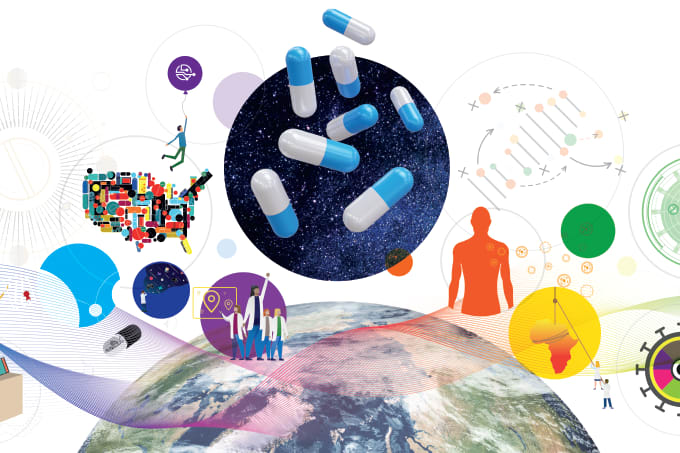
Geopolitical conflicts, regulatory shifts, and climate-related disruptions are converging to create unprecedented risks for pharma supply chains. All players must adapt, including CDMOs. But how can CDMOs adapt to this era of volatility without compromising cost efficiency and regulatory compliance? We spoke with Pascal Degen, Vice President of Global Supply Chain Management at Bachem, to find out.
Aside from geopolitical conflicts and natural disasters, what other emerging threats must CDMOs be prepared for?
Cyberattacks on critical infrastructure, regulatory changes, and global supply chain disruptions caused by pandemics, trade conflicts, or labor shortages all pose significant threats. The COVID-19 pandemic and Suez Canal blockage highlighted vulnerabilities in supply chains, such as overreliance on specific geographic regions and rigid batch manufacturing processes.
In an increasingly unpredictable world, resilient supply chains are crucial. To this end, real-time monitoring and integration via advanced ERP systems have become standard. Other key practices include diversification of material sourcing to reduce dependency on any one region, strategic stockpiling of critical materials, and the uptake of flexible manufacturing technologies. A supply chain management strategy should be grounded in the four pillars of flexibility, collaboration, and control and transparency.
As an example from our business, we have established cross-functional teams specifically designed to link procurement activities with distribution processes. These teams ensure that the whole supply chain is interconnected, enabling us to address disruptions with efficiency and clarity. We’ve also been focusing on in-house manufacturing and long-term supplier partnerships to reduce dependency on third-party suppliers and to allow us to more rapidly respond to demand fluctuations and disruptions.
What are the main barriers CDMOs face in adopting advanced technologies, such as predictive analytics and blockchain, that may help improve supply chain resilience?
Predictive analytics can be highly effective in demand forecasting and identifying supply chain risks, but success depends on high-quality data, including historical insights, real-time monitoring, and strong integration with partners. Blockchain has shown promise in enhancing traceability for data exchanges. These technologies can streamline operations, reduce disruptions, and build resilient supply chains, although widespread adoption remains gradual.
However, high implementation costs can be a significant barrier, along with the inherent technical challenges of integrating new digital technologies into legacy systems. When implementing new technologies, success hinges on having skilled and capable personnel to operate them and facilitate the changeover.
Is there a balance between diversifying supply chains and maintaining cost efficiency?
Pharmaceutical manufacturers must first weigh up the risks versus benefits of diversification. Companies should aim to optimize cost efficiency via economies of scale, streamlining processes, and using predictive analytics for better demand forecasting. Diversifying suppliers and manufacturing locations can increase resilience but must be weighed against added logistical costs. Successful companies find the right balance by taking a broader view: analyzing market conditions, operational needs, and risk tolerance to create flexible, cost-effective strategies.
Many CDMOs work in multiple markets. What are the challenges of navigating conflicting international regulations?
CDMOs need dedicated regulatory affairs teams to keep a close eye on new legislation across regions to ensure swift adaptation. Integrated enterprise resource planning systems and real-time data analytics can help track compliance requirements, while streamlining operations. Additionally, close partnerships with local suppliers and stakeholders can help you to keep on top of regional regulatory nuances.
What industry-wide changes would you advocate for to better prepare pharmaceutical supply chains for future uncertainties?
The industry should prioritize integrated business planning systems that work across different suppliers to support the entire supply chain. Such a move would help enhance coordination and decision-making.
Additionally, a deeper understanding of upstream supply chains, enabled by real-time tracking and tracing systems, is essential to improving visibility, anticipating disruptions, and mitigating risks. This insight can also be used to promote sustainability, by optimizing raw material sourcing and implementing resource-efficient production systems and delivery from different supply partners to the end consumer. By focusing on resource use and its effects on the planet, industry can align supply chain practices with long-term environmental goals, while ensuring consistent supply. These measures are critical to building resilient, future-ready supply chains that balance reliability with environmental responsibility.




